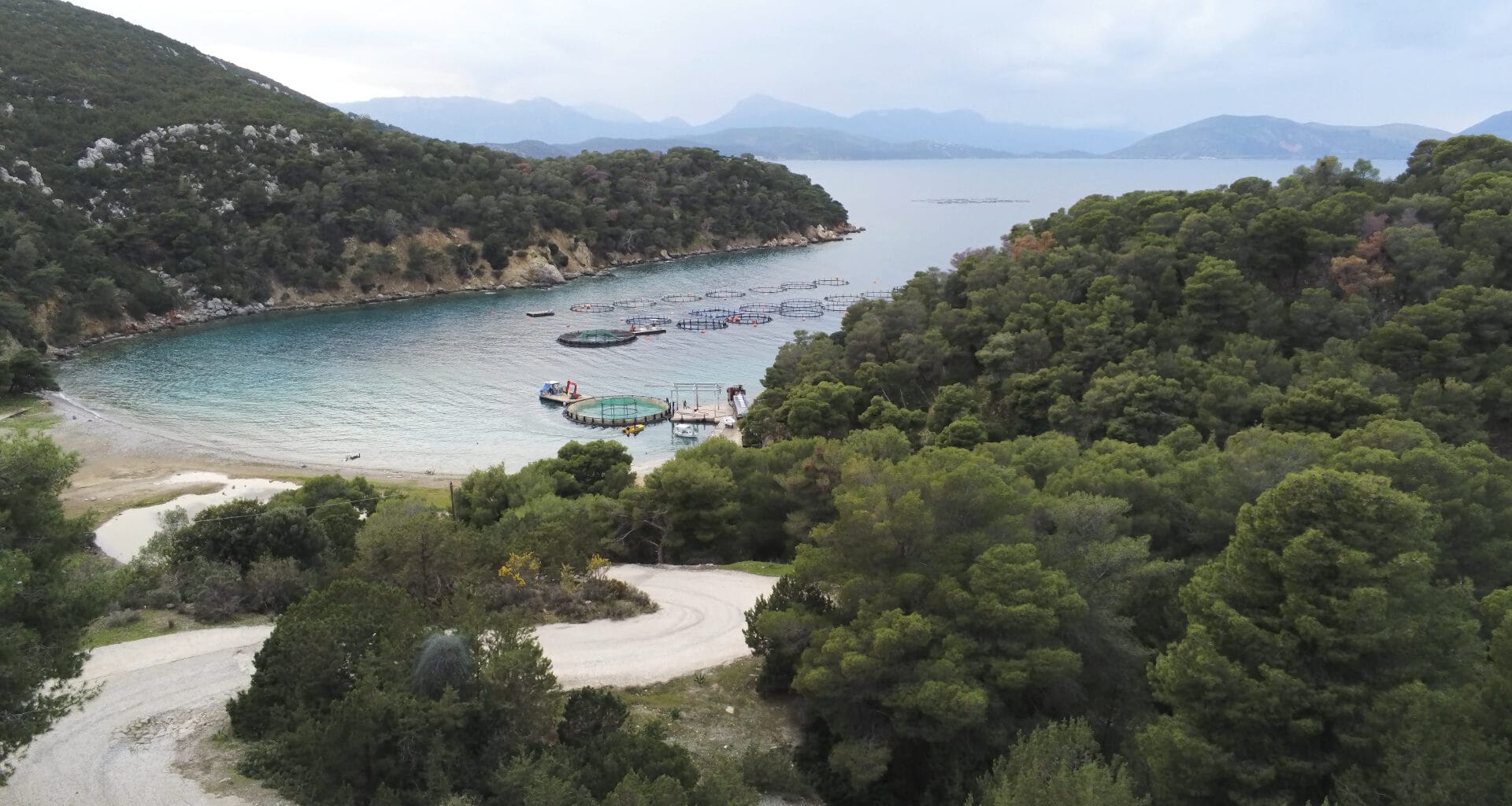Residents of the Greek island of Poros have expressed fears over a plan to expand industrial fish farming, which threatens to occupy a quarter of the island and cause environmental damage.
The Ferret recently visited Poros to produce a video documenting local people’s concerns over the proposed expansion by a Spanish multinational called Avramar, which would increase the current area of the island impacted by 28 times to 667 acres.
The fish farms in Poros produce sea bream and sea bass. Annual production on the island — where four small-scale farms already operate — would leap from 1,147 tons to 8,831 tons in five years.
The plan would cover 25 per cent of both Poros’ coastline and land. “It is a virgin area, it has not been developed and this will destroy the local environment,” said Fay Orfanidou, director of the Poros-based organisation, Katheti.
In 2011, the Greek government identified 25 “areas of organized development of aquaculture activities”, in order to increase national aquaculture production to 235,000 tons by 2030 — Poros is on the government’s list.
Since 2011, only eight of the 25 sites of the national plan have been definitively approved.
In recent months, however, the approval process was accelerated by the support of private equity funds, managed by international investors, which have taken control of almost all of farmed fish production in Greece.
Poros’s fish farms are owned by Avramar, a multinational company based in Valencia, Spain, belonging to the private equity funds Amerra, in the US, and Mubadala, in the United Arab Emirates.
Locals on Poros are trying to stop the plan, which could be given the green light by the Greek government in the coming months.
“When the marine environment is degraded, and on the one quarter of the island that is covered with pine trees they are allowed to do industrial fish farming, tourists will inevitably stop coming to enjoy the clean water and pine forest,” said Andreas Kaikas, a member of the local tourist committee.
According to a study in 2015, 80 per cent of the workforce in Poros was engaged in services directly or indirectly related to tourism.
“So, 80 percent of the residents now working in tourism will have to turn to other jobs, which unfortunately is not an option on the island,” said Kaikas.
According to Filippos Petridis, director of Ambio, a consultancy company involved in the fish farms expansion plan, the absence of large scale activities, such as holiday resorts, is a criterion for making the island a suitable place for the development of aquaculture: “If you go there and talk to them about the development of tourism, they don’t want large developments, they want small family operations,” he told us.
Apostolos Touralias, chairman of the Hellenic Aquaculture Producers Organization and country manager of Avramar Greece, said: “There is no growth potential if we remain at 130,000 tons production. Turkish fish farmers are expected to increase their production from 50,000 tons to over 300,000 tons in 2023 and will reportedly approach 350,000 tons in 2024,” said Touralias.
In February 2023, the Greek government approved a similar plan to expand fish farms in the Aetolia-Acarnania region and the Ionian Islands, despite opposition from local communities.
According to the Hellenic Aquaculture Producers Organization, in 2021 Greek annual production of Mediterranean aquaculture fish reached 131,000 tons — 96 per cent being sea bream and sea bass with an estimated value of €636 million.














